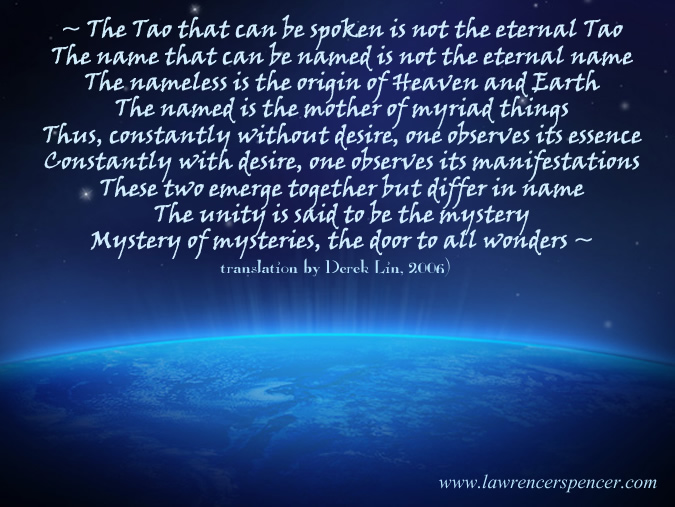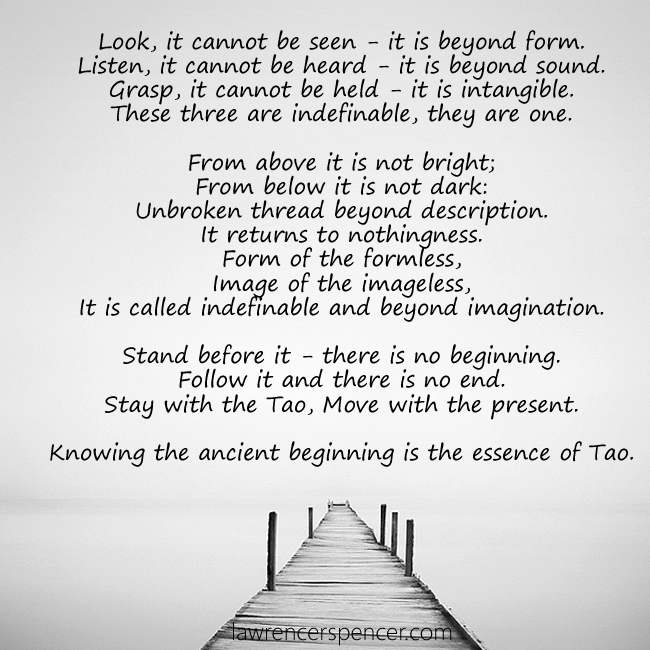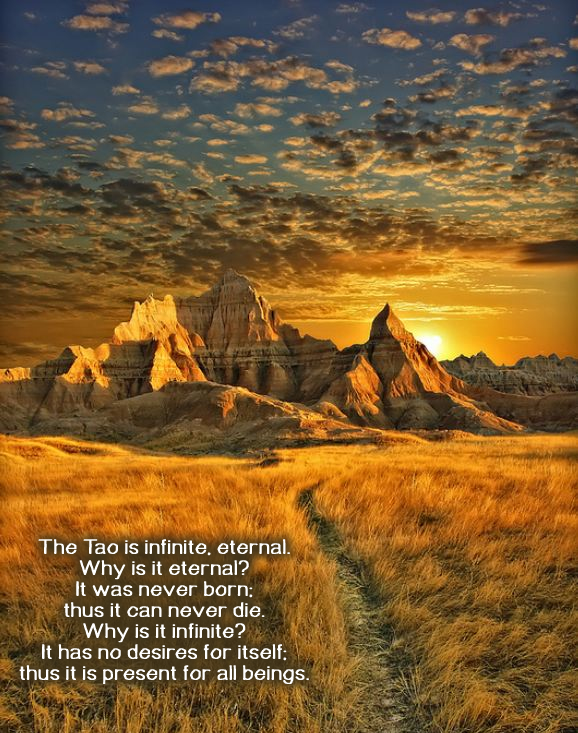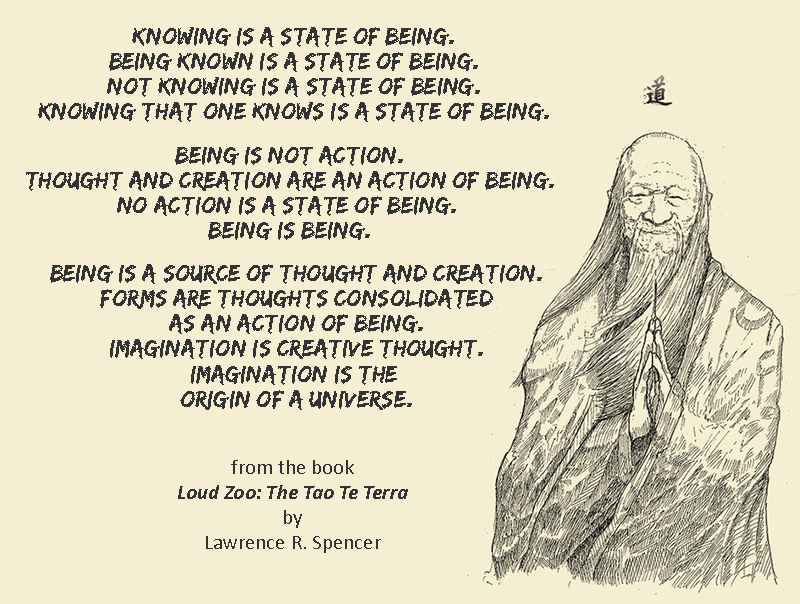Republished by Blog Post Promoter
~ The Tao that can be spoken is not the eternal Tao
The name that can be named is not the eternal name
The nameless is the origin of Heaven and Earth
The named is the mother of myriad things
Thus, constantly without desire, one observes its essence
Constantly with desire, one observes its manifestations
These two emerge together but differ in name
The unity is said to be the mystery
Mystery of mysteries, the door to all wonders ~
_________________
Laozi, author of a small book titled “Tao Te Ching” (literally, “The Way”), lived during the 6th or 5th century BCE. His surname was Li and his personal name was Er or Dan. He was an official in the imperial archives and wrote a book in two parts before departing to the west. In another, Laozi was a different contemporary of Confucius titled Lao Laizi (老莱子) and wrote a book in 15 parts. In a third, he was the court astrologer Lao Dan who lived during the 4th-century BCE reign of Duke Xian of Qin.[20][21] The oldest text of the Tao Te Ching so far recovered was written on bamboo slips and dates to the late 4th century BCE.
According to traditional accounts, Laozi was a scholar who worked as the Keeper of the Archives for the royal court of Zhou. This reportedly allowed him broad access to the works of the Yellow Emperor and other classics of the time. The stories assert that Laozi never opened a formal school but nonetheless attracted a large number of students and loyal disciples. (Wikipedia)





